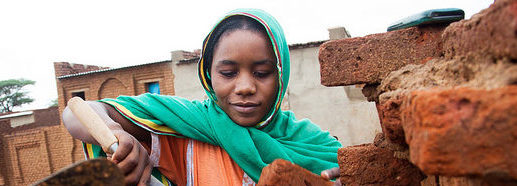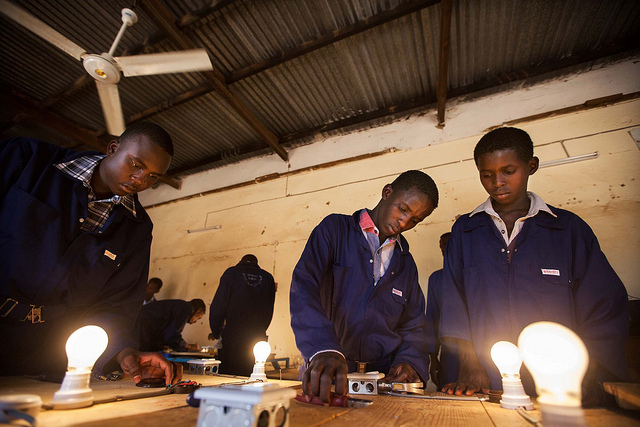I googled myself today. Not my name, no, I googled what you could describe me as, a ‘youth in agriculture’. If you haven’t done that yet, let me tell you that google has 179 000 000 hits on me. I’m famous! Apart from that, the internet seems to be quite worried about me.
Oxfam asks “who wants to farm? Hardly any young people, it seems”; FAO presents Youth and Agriculture: Key Challenges and Concrete Solutions; YPARD looks at 9 ways to engage youth in agriculture; and CCAFS wonders whether youth can they lead the way in a changing climate.
If you’re under 30, as I am, you might get worried now. There seems to be a lot of pressure on us. Agriculture wants us to get engaged! But don’t worry too much, because most people seem to get this wrong.
Agriculture needs entrepreneurs, not youth!
It seems there are two common reasons for why agriculture needs youth: labour and innovation.
Agriculture faces a labour shortage in most countries. Globally, the average age of a farmer is around 60. People are not able to work physically at the age of 60, as they could when they were 20. Also, with more and more people retiring, the agricultural labour force is shrinking.
Assuming that machines are not going to take over completely yet, this reduced labour force must be compensated for by bringing more people into agriculture. But, that’s not necessarily a youth-related issue. You don’t have to be 20 to work productively in agriculture. If enough people at the age of 40 moved into agriculture, that would just as well tackle the labour deficit. So why put all pressure on those younger than 30?
Innovation is the point that is most commonly covered. Going back to my google search from earlier: “Young people can be a vital force for innovation” says Gain Alliance who see that “young people can transform the agricultural sector by applying new technologies and new thinking”. The Mercy Corps argues that “we need innovative and motivated youth engaged in agriculture production to meet the world’s food needs in a sustainable manner.” They all have a good point. Agriculture needs innovation if we want to feed 9 billion people by 2050. With current states of soil degradation, climate change, and patterns of malnutrition, the way we produce, distribute, consume and even think of food has to change fundamentally.
But innovation is not a youth-related issue either. There is no shared innovative-problem-solving-ability of people under 30. We don’t just walk around and “innovate” or “transform” all the time. Innovation comes from creative individuals and groups of different ages.
It comes from entrepreneurs. Entrepreneurs are people who start businesses and, doing so take risks: Risks that their business would not pick up as expected, that they might have financial losses etc. Innovation is a key strategy for many entrepreneurs to keep these risks at a minimum.
Entrepreneurs can be found across all ages. But, and that’s where most misunderstandings happen, you might be most likely to be entrepreneurial at a young age. Young people are more likely to take on risks, especially related to their work lives. Also, a person’s creativity, a prerequisite for being able to innovate, seems to peak in the first half of one’s life.
So, if you’re looking for entrepreneurs or in the agricultural sector: agripreneurs, you might want to look among the younger generations.

